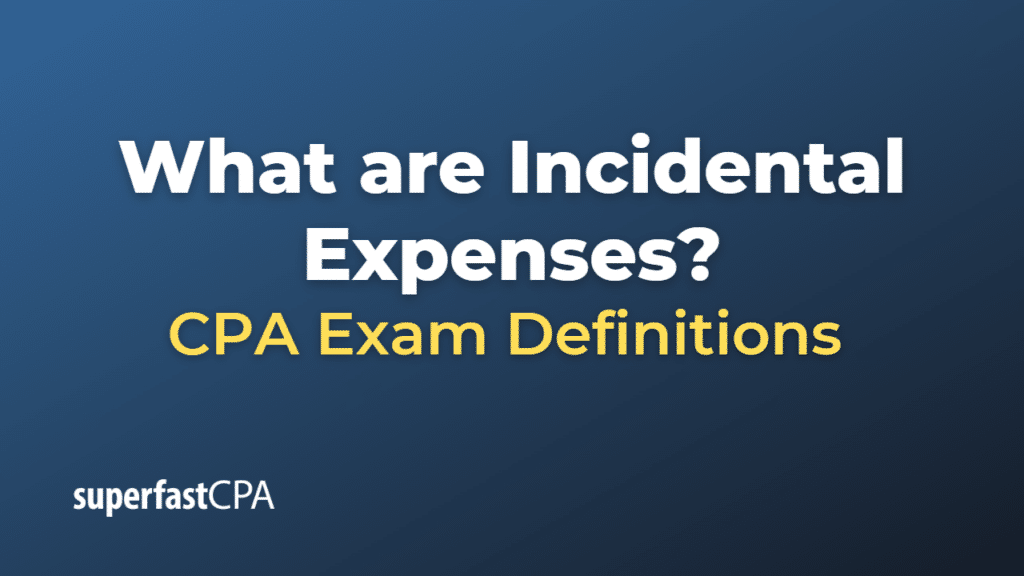Incidental Expenses
Incidental expenses, often referred to as “incidentals,” are minor or secondary costs associated with business activities, travel, or projects that are not the primary expenses. These can include things like tips for service, meals during business travel, office supplies, postage, and other small items. They are not the main costs associated with the activity, but they can accumulate over time and become significant if not managed properly.
Incidental expenses are often accounted for in budgets and financial plans. For example, businesses often provide employees with a per diem allowance for incidental expenses when they travel for work. This is to cover meals, tips, local transportation, and other minor costs that may be incurred during the trip.
Incidental expenses can also refer to costs that are not part of the main operating expenses of a business but are still necessary for its operations. For example, the cost of maintaining office plants or the coffee machine could be considered incidental expenses.
It’s important to note that incidental expenses can be tax-deductible if they are business-related, but the specific rules and limitations can vary depending on the jurisdiction and the specific tax laws in effect. It’s always a good idea to consult with a tax professional to understand what can be claimed as a business expense.
Example of Incidental Expenses
Let’s consider a business travel scenario.
Imagine a company sends an employee, Sarah, on a business trip to another city for a week. Sarah’s primary expenses for the trip, such as her airfare, hotel accommodation, and transportation to and from the airport, are covered directly by the company.
However, there are also many smaller expenses associated with her trip. These might include:
- Meals: Sarah needs to eat while she’s on her trip. She might have breakfast at her hotel, lunch at a cafe near her meetings, and dinner at a restaurant.
- Tips: Sarah might tip the taxi drivers who take her around the city, the hotel staff who clean her room, or the waitstaff at the restaurants where she eats.
- Other transportation: Sarah might need to take a local bus or subway to get to her meetings, or she might take a taxi if she’s running late.
- Miscellaneous: Sarah might need to buy a phone charger because she forgot to pack hers, or she might buy a snack and a magazine at the airport for her flight home.
These are all incidental expenses. They’re not the main costs of the trip (which are the airfare and hotel), but they’re still necessary for Sarah to carry out her business activities. Sarah would typically either pay these expenses out of her pocket and then be reimbursed by the company, or she might use a company credit card. Either way, these incidental expenses would be accounted for in the company’s budget for business travel.












